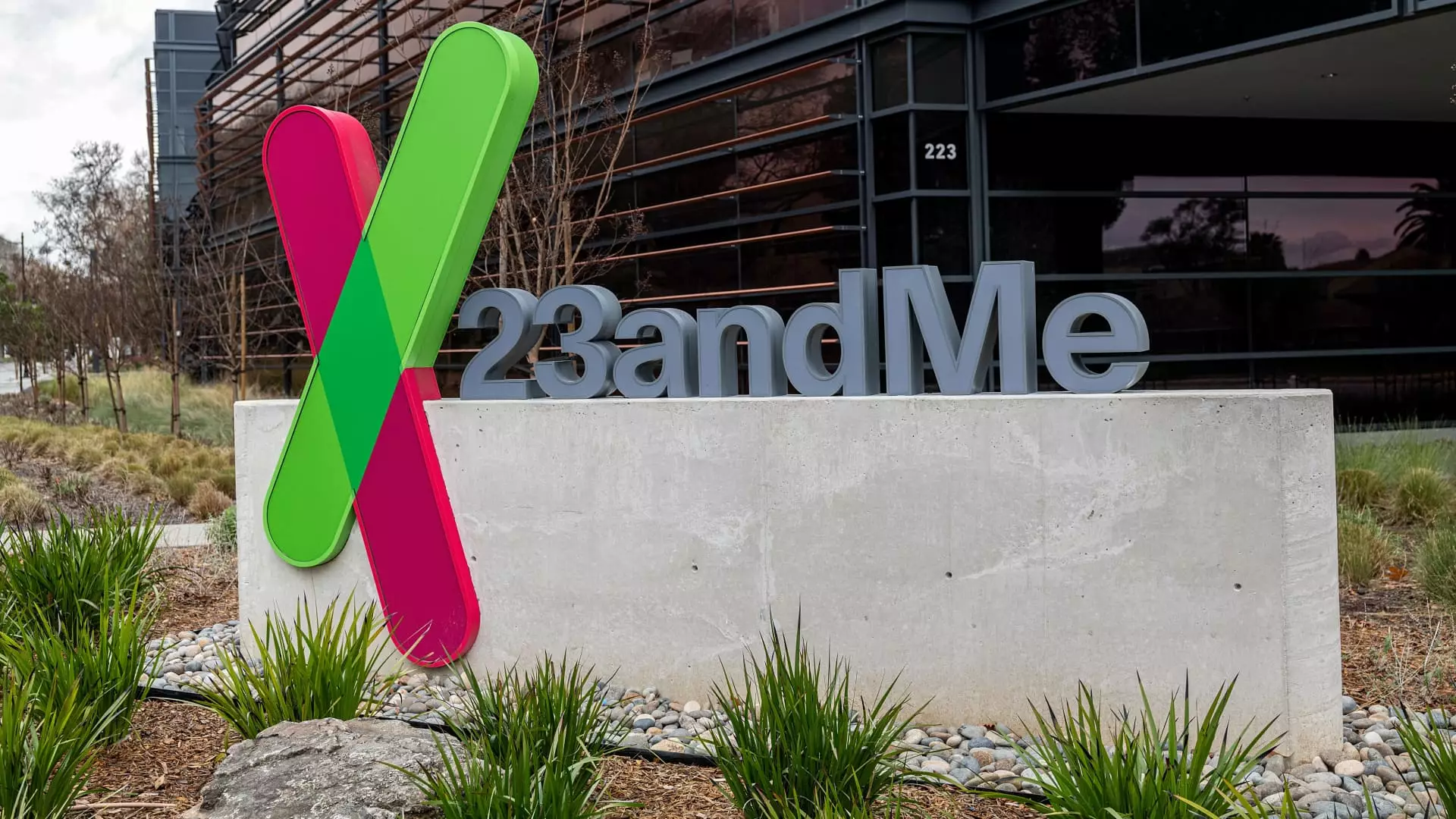In a shocking turn of events, 23andMe, once heralded as a revolutionary tool for personal genomics, has filed for Chapter 11 bankruptcy protection. This unprecedented step raises profound questions about the viability of genetic data companies, the ethical considerations surrounding personal information, and the priceless value of genetic privacy. With a debt load troubling enough to jeopardize its existence, the company is now poised to auction off both its assets and its extensive genetic database, which houses sensitive information belonging to millions of customers.
The gravity of this situation cannot be overstated. Unlike traditional data breaches, where information can potentially be changed or erased, genetic data is permanent and unique to each individual. This characteristic generates a serious risk profile: if it falls into the wrong hands, it could lead to a variety of fraudulent activities—from identity theft to unforeseen consequences in health insurance. The National Human Genome Research Institute underscores that, unlike other forms of data, genetic sequences defy complete anonymization, resulting in a digital DNA fingerprint that lasts a lifetime.
Data Breaches: The Alarming Reality
In October 2023, 23andMe faced a severe data breach in which hackers infiltrated customer records, exposing sensitive genetic information of approximately 7 million users. This incident not only exposed vulnerabilities in their data security but also ignited deep-rooted concerns that many consumers had harbored regarding privacy and ethical management of genetic data. Despite the assurances from the company that there will be no changes in data management or protection during the pending sale, skepticism persists. Such assurances ring hollow in the wake of a significant compromise that vulnerable users never asked for in the first place.
California Attorney General Rob Bonta issued a consumer alert following the bankruptcy announcement, urging users to reconsider their association with 23andMe. Particularly significant is his recommendation that residents invoke their rights under existing laws to have their genetic data deleted. This represents a clear acknowledgment from the authorities about the precarious situation consumers find themselves in—trusting a company handling highly sensitive genetic information that is now teetering on the brink of collapse.
What This Means for Consumers
As consumers contemplate their future relationship with 23andMe, they must also critically evaluate the broader implications of genetic data management. Experts warn that it’s essential for users to take proactive steps in safeguarding their information. “Your genetic data is your biological blueprint,” says Adrianus Warmenhoven, who serves on the security advisory board at NordVPN. He pushes consumers to adopt a vigilant approach when dealing with personal data, advocating for regular monitoring of one’s digital footprint and encouraging individuals to delete unnecessary accounts and permissions.
The bankruptcy of 23andMe serves as a graver reminder that the technology we once viewed as cutting-edge can become hazardous in the wrong hands. With the possibility of new ownership comes the potential for significant changes in data practices, even if 23andMe claims otherwise. For consumers who already feel vulnerable testifying their deepest biological secrets to a company now facing financial strife, the prospect of their genetic information being unprotected is troubling.
Paths Forward: Individual Responsibility in the Digital Age
With the rise of identity theft and digital activism, it’s critical for consumers to be proactive about protecting their data. 23andMe’s guiding principle during this tumultuous time—promising unwavering commitment to privacy—is commendable, yet insufficient given the stakes involved. If a customer decides to cancel their subscription, a straightforward process outlined by the company allows users to delete their accounts and genetic data. Still, the question remains: why should users have to take such measures for data that never should’ve been at risk in the first place?
The implications extend even further. The intersection of capitalism and personal privacy raises questions about how far companies are willing to go to monetize user data. The DNA testing market, although innovative, has become a double-edged sword where the allure of genetic understanding clashes with the perils of exposure to unethical practices.
In light of 23andMe’s turbulence, consumers must remain vigilant, informed, and skeptical about how they share their genetic data. The need to protect oneself in an age where personal information is currency has never felt so urgent. The fallout from 23andMe’s crisis serves not only as a cautionary tale but a wake-up call for all who engage with the rapid advancements in genetic technology.

